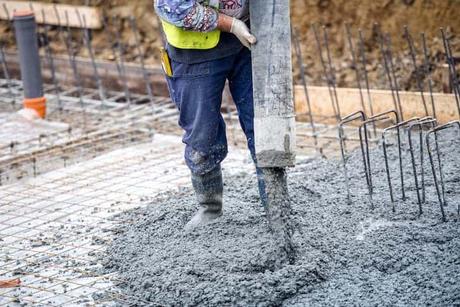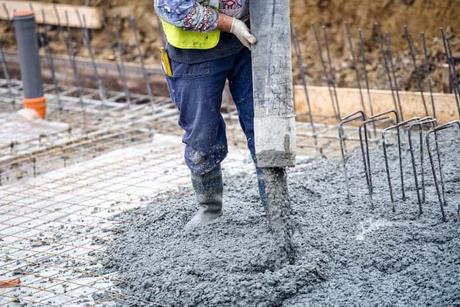Can You Recycle Concrete?
As humans, we all have the desire to go for the things that would last us for a considerable number of times regardless of how much they cost or of difficult it is to come by them. This desire explains why many people have come to prefer to use concrete for many of their construction works rather than a variety of other alternatives available.
Without a doubt, where it is used, concrete will serve its time and give value to the owner. But then, this is not everything about them. Many times, we need to shift our attention from the benefits concrete gives to our construction work to the effects they might be having on the environment. This is important so we don’t throw caution in the wind and continue to enjoy the long-lasting and durability of concrete, while they are potentially harming our environment.

In this light, we will be considering some salient questions about concrete. In this post, we will look at whether concrete is recyclable, and whether it is environmentally friendly. We will also consider if the concrete is biodegradable or sustainable. Lastly, we will take a peep into whether concrete is considered hazardous waste and how you need to dispose of old concrete.
Even if you have not used concrete before, you can already tell that the information on this page will be helpful to you. For you who have used concrete, then you shouldn’t miss out on this information. So, what should you do to get the best out of this post? Well, that’s simple! Relax, pay attention, and read between the lines. If you are ready to do this, let’s get to it.
Is Concrete Recyclable?
Concrete is so much in great use today that hardly can you find a place in the United States of America where there has been no use of concrete during construction at all. As good as this is, it is important for us to consider the possibility of recycling this concrete. If, for instance, there is a demolition, where does the demolished concrete go? Well, let’s find out together.
Yes, concrete is recyclable. Concrete might be the last thing on your list of recyclable materials, but it still possible for you to recycle it with ease. How do you do this, though?
Recycling concrete does not come as easy as it may sound. But, you have nothing to fret about. Recycling concrete is usually done through pulverizing or crushing the concrete. This is done with some industrial crushing tools with impactors and jaws.
After crushing it, the recycling station runs the concrete through another impactor (secondary) and screens the crushed concrete to separate the unwanted particles and dirt. Additionally, recyclers use magnets, separators and water flotation to remove the metal, dirt or other materials that may hamper the smooth recycling of the concrete.
You may be wondering what uses will the recycled concrete be put to. We also wondered like that initially, but now we have got the answers. Recycled concrete can be used in the different ways that gravel, aggregate and paving materials can be used.
In this light, recycled concrete can be used for
- Walkways’ permeable paving
- Underground utility trenches’ bed foundation
- New concrete’s aggregate
- Asphalt paving base
- Erosion streambank controller
- Landscaping mulch
- Wire gabions’ fill
- Materials for the habitat of oceanic reef
Recycling concrete may look like some activities you have always done with other recyclable materials.
But for this, it has obvious benefits. Some of which are
- Saving construction waste
- Reducing contractors’ tipping fees for construction waste disposal
- Keeps construction waste away from landfill
- Reduce the cost of transportation of construction waste for disposal
- And, of course, saving the environment
Is Concrete Environmentally Friendly?
Knowing whether concrete is environmentally friendly or not would inform a lot of decisions that have to do with our use and disposal of concrete. Since the environment means a lot to every one of us, we can’t afford to not find answers to this question.
Yes, concrete is environmentally friendly. This may sound like a shock to many people since you might have wondered how something as hard as concrete can still be environmentally friendly. Well, the reason for this is just a paragraph away.
Concrete is environmentally friendly because it comes from a natural source. If you list everything that comes together to form the concrete used most on construction sites, what you will have are; sand, cement, water, and gravel. These are raw materials whose existence is natural in our environment.
Even types of cement that might seem odd from the list come from natural materials like limestone, iron ore, clay and sand. So, there is no much worry about the environment when it comes to dealing with concrete.
Also, because materials used for concrete are natural, no environmental risk is posed about the release of harmful gases to the atmosphere, underground water or immediate surrounding. In fact, many have said that in a situation where concrete harbors harmful substances, there is no possibility of escape for such substances because the concrete holds it firmly within.
So, you see, concrete not only release toxic substance to the environment on their own, but they also help to hold in substances that would have been released to the atmosphere.
However, there is yet a downside to the use of concrete in the environment. And this has to do with the barrier they create sometimes. For instance, concrete, because of its hard nature, can stop the absorption of stormwater into the ground. Where this happens consistently, it can lead to flooding, especially in areas where concrete has largely been used for flooring or outside areas.
In all, concrete for construction work is largely eco-friendly and should be encouraged. It may be hard when used and may pose some environmental concerns, but it does not have a dangerous effect on the environment.
Is Concrete Biodegradable?
Whether a material is biodegradable goes a long way in helping us determine if it is harmful to the environment or otherwise. In its raw form, concrete is supposed to be “green”. This fact is attributed to the materials from which concrete is made.
Before it becomes concrete as we know it, concrete is made from rock materials as well as Sand. These are then ground together to reach a fine texture. In this format, concrete is green. This is because it is quite biodegradable in this state.
However, this new fine powder is then mixed with a number of other components and raw materials, some of which are natural and others that are chemical. At this stage, it starts to lose those green and biodegradable qualities. The state where concrete starts to become non-biodegradable is when it is applied. When it is used for industrial purposes such as in building construction, concrete becomes hardened and it is quite difficult to decompose thereafter.
So, to answer the question, Concrete is not biodegradable. This is because it is very difficult for it to decompose after it has hardened.
Is Concrete Sustainable?
When we ask if something is sustainable, it means that we trying to find out if we can continue to produce or use that thing without harming the environment. In other words, will the continuous production or use of this particular thing affect the environment positively? If it is not sustainable, it means that if we continue to produce or use the said thing, it will keep on harming the environment.
The continuous use of concrete has the tendency to harm the environment. This is simply based on the fact that concrete is not really biodegradable and therefore cannot easily decompose. But does that fully answer the question? Absolutely not. Stay with us as we give you the full answer to the question of whether concrete is sustainable or not.
Although concrete is not biodegradable, it is very much recyclable. That means it can be reusable almost indefinitely. There always will be applications for old concrete. This means that old concrete will really not affect the environment. Thus, concrete can be said to be sustainable.
So, in case you are in doubt about the sustainability of concrete, just know that, through conscious recycling, concrete can be sustainable. This alone makes a case for why you should always make attempts to recycle your demolished concrete each time you have the opportunity to do.
Is Concrete Considered Hazardous Waste?
The question of whether concrete is hazardous waste is a slightly complex one. Thus, we take the answer quite gradually.
First, there is an established fact that waste is a product for which there is no need anymore. If this is the case, we can all agree that concrete in itself is not a waste in any way. However, concrete may become some form of waste if it becomes too old. Even in that case, it may still be recycled. Thus, there is really no state in which concrete is a waste.
On the other hand, however, can concrete be considered hazardous? Many regulations state that material is regarded as hazardous if it has a very high pH. The figure is put at 12.5 pH. Concrete, just like cement, has a pH of above 12.5 pH. So, the answer is that concrete can be considered to be hazardous.
This is why you should refrain from dealing directly with concrete if you don’t have any form of expertise in dealing with hazardous waste. It can be dangerous to you or those around you.
How Do You Dispose Of Old Concrete?
It is quite a difficult process to get concrete disposed of. This is because it can be dangerous to do so, as it is considered hazardous waste. Aside from this, concrete is heavy and not quite easy to move around. However, considering the dangers that exist with improperly disposing of concrete, this is something you have to do. And do properly too.
One of the best ways to dispose of old concrete is to hand it over to companies and entities that might be in need of it. One of such are companies that supply building materials. Then there are landscaping companies. Others are direct construction firms.
Most of these companies will pay you a fee for this. As such, you get to earn some stipends from your old concrete.
We also encourage you to recycle concrete, as this is one of the best things for the environment.
Conclusion
Concrete is one of the most important materials used globally. It is an important product in helping us achieve one of human’s basic needs, which is shelter. However, its widespread use and popularity throw up some concern about its effect on the environment and sustainability.
We know this is something you are very concerned about. As a result, we have provided this comprehensive guide to answer the questions you are most curious about. The ball is now in your court.
References:
https://www.rmagreen.com/rma-blog/bid/75489/Is-Concrete-Hazardous-Waste
https://www.thebalancesmb.com/recycling-concrete-how-and-where-to-reuse-old-concrete-844944
https://www.concretenetwork.com/concrete/greenbuildinginformation/


